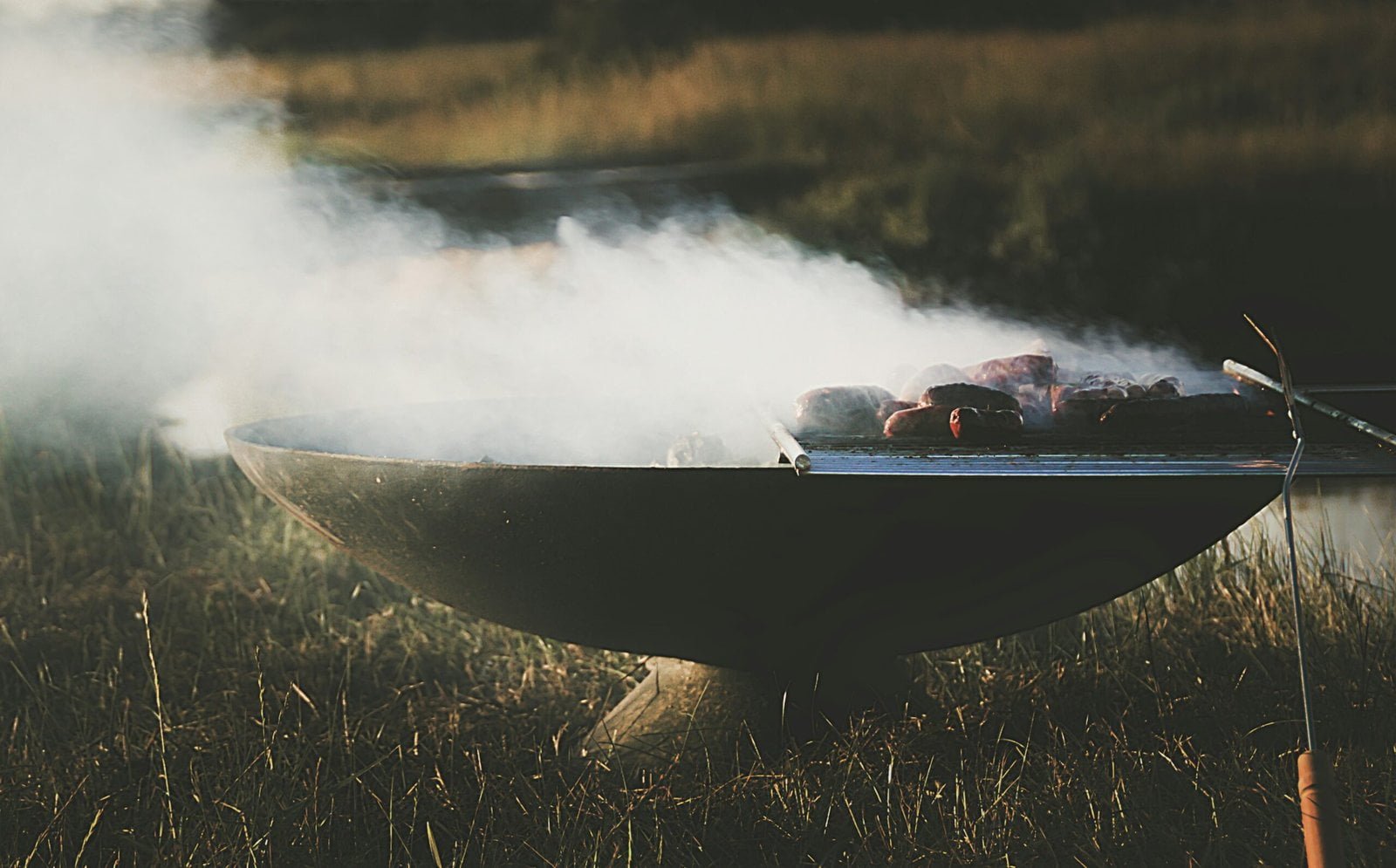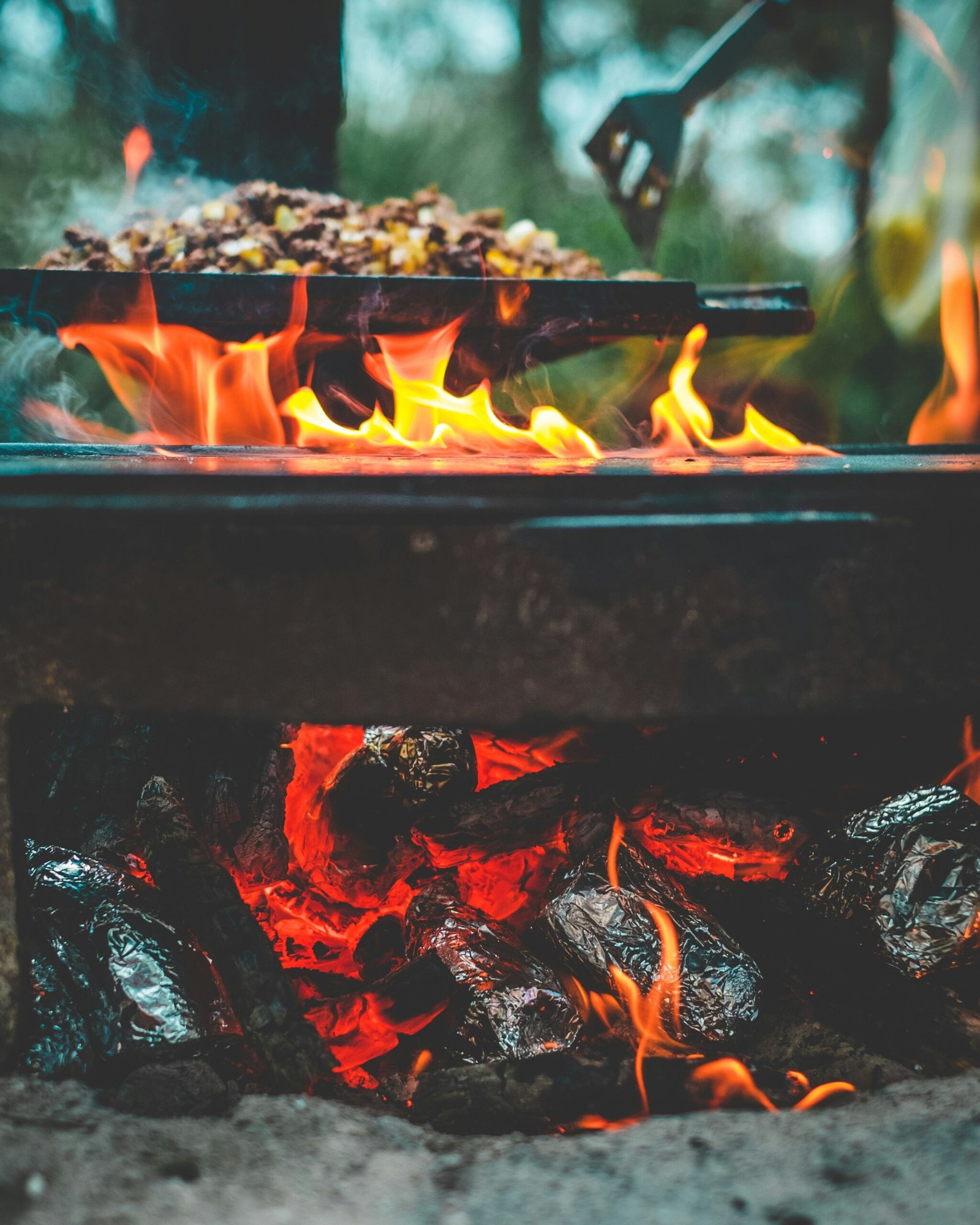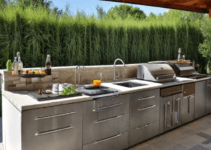Discover the different types of barbecues including charcoal, gas, electric, and pellet grills. Learn their unique benefits and drawbacks to make an informed decision based on your grilling needs and preferences. Whether you prioritize flavor, convenience, or versatility, find the perfect barbecue for your outdoor cooking adventures.
Understanding Different Types of Barbecues
When it comes to choosing the right barbecue, understanding the different types available on the market is essential. The primary categories include charcoal, gas, electric, and pellet grills, each offering unique benefits and drawbacks. Knowing these can help you make an informed decision based on your specific needs and preferences.

Charcoal Grills
Charcoal grills are beloved by traditionalists for the smoky flavor they impart to food. They use charcoal briquettes or lump charcoal as fuel, which can reach high temperatures, ideal for searing. However, managing the heat can be challenging and time-consuming. Additionally, charcoal grills require more cleanup due to ash buildup. They are generally less expensive upfront but can become costly over time due to the continual need for charcoal.
Please, read our post and do not forget to check our YouTube channel “Grig Stamate”:
https://www.youtube.com/@GrigStamate
You will find there thousands of designing, furnishing, and decorating ideas for your home interior and outdoors.
Allow me to mention one of them:
Elegant Indoor-Outdoor Living Spaces | Great Modern Home Interiors #14 (video)
Gas Grills
Gas grills, powered by propane or natural gas, are known for their convenience and speed. They heat up quickly and offer precise temperature control, making them ideal for beginners. The flavor may not be as robust as that from charcoal grills, but some models come with favorize bars to add a smoky touch. Maintenance is straightforward, mainly involving cleaning the grates and checking gas connections. While they are more expensive initially, the efficiency and ease of use often justify the cost.
Electric Grills
Electric grills are perfect for those living in apartments or places with strict fire regulations. They simply plug into an electrical outlet, eliminating the need for fuel. These grills are easy to use and clean, but they may not achieve the high temperatures required for searing, and the flavor might lack the depth found in other types. They are generally affordable and convenient, making them suitable for casual grilling.
Pellet Grills
Pellet grills use wood pellets as fuel, combining the convenience of gas with the rich flavor of charcoal. They are versatile, capable of grilling, smoking, roasting, and baking. Pellet grills offer excellent temperature control and even cooking but are usually more expensive than other types. They also require electricity to operate the auger and fan systems, adding to the operational costs. Maintenance involves regular cleaning of the ash and pellet hopper.
In summary, each type of barbecue offers distinct advantages and disadvantages. Charcoal grills excel in flavor but require more effort and maintenance. Gas grills provide convenience and control but at a higher upfront cost. Electric grills are the most convenient but may lack in flavor and high-temperature capabilities. Pellet grills offer versatility and superior flavor but come with higher costs and maintenance requirements. Consider your specific needs, preferences, and budget to choose the right barbecue for you.
Assessing Your Grilling Needs and Preferences
Choosing the right barbecue begins with a thorough assessment of your specific grilling needs and preferences. By understanding factors such as the frequency of use, the typical number of guests you entertain, the space available for your barbecue setup, and your desired cooking styles, you can make a well-informed decision that ensures optimal grilling satisfaction.
First and foremost, consider how often you plan to use your barbecue. If you envision grilling as a regular activity, perhaps even several times a week, investing in a durable and versatile barbecue is essential. Frequent grillers might benefit from a gas or pellet grill, which offers convenience and quick start-up times. Conversely, if you see grilling as a sporadic activity, perhaps reserved for occasional weekends or gatherings, a charcoal grill or a smaller, portable option could suffice.
The number of guests you typically entertain is another crucial factor. For those who often host large gatherings, a barbecue with a larger cooking surface and multiple burners, such as a high-capacity gas grill, can accommodate the increased demand. On the other hand, if your gatherings are more intimate, a compact grill with a moderate cooking area might be more appropriate, offering efficiency without unnecessary bulk.
Available space also plays a significant role in your decision-making process. For those with ample outdoor space, the possibilities are virtually endless, from built-in gas grills to large smoker setups. However, if you are working with limited space, such as a small patio or balcony, a portable or compact grill would be more suitable. Ensuring proper ventilation and safe operation within your available space is paramount.
Lastly, your preferred cooking styles can greatly influence your choice of barbecue. Enthusiasts of slow cooking and smoking might gravitate towards charcoal or pellet grills, which excel in imparting rich, smoky flavors over extended cooking times. If you prefer high-heat searing for steaks and quick meals, a gas grill’s ability to reach higher temperatures swiftly will be advantageous. Understanding these preferences will guide you to a barbecue that complements your culinary aspirations.
Key Features to Look for in a Barbecue
When selecting the ideal barbecue, understanding the key features that contribute to its performance and versatility is crucial. One of the primary aspects to consider is the cooking surface area. A larger surface area allows for more food to be cooked simultaneously, which is particularly beneficial when entertaining guests. However, it’s essential to balance size with your available space and typical cooking needs to avoid unnecessary bulk.
For those opting for a gas grill, the BTU rating, or British Thermal Units, is a significant factor. The BTU rating indicates the grill’s heat output and efficiency. While a higher BTU rating suggests more heat, it should be proportional to the cooking surface area to ensure even cooking. An overly high BTU for a small grill can lead to inefficient fuel usage.
Temperature control options are another critical feature. Advanced barbecues offer multiple burners with individual controls, allowing for precise heat management. This is particularly useful for cooking different types of food simultaneously, as each can require a distinct temperature. Some models even include infrared burners for searing, adding another layer of versatility.
Build quality should not be overlooked. High-quality materials, such as stainless steel, ensure durability and resistance to rust and corrosion. A sturdy construction can withstand the rigors of frequent use and harsh weather conditions, making it a worthwhile investment.
Portability is an attribute that may be important depending on your lifestyle. If you enjoy camping or tailgating, a portable barbecue with wheels or a compact design can be highly advantageous. Look for features like foldable legs or handles that make transportation easier.
Additional accessories can significantly enhance your grilling experience. Side burners provide a convenient option for cooking side dishes or sauces. Rotisserie kits allow for even roasting of meats, and built-in thermometers help maintain precise cooking temperatures. These extras can transform a standard barbecue into a versatile outdoor kitchen.
By carefully evaluating these key features, you can select a barbecue that not only meets but exceeds your expectations, ensuring enjoyable and efficient outdoor cooking experiences.
Expert Tips and Tricks for Making the Best Choice
When it comes to choosing the right barbecue, there are several expert tips and tricks that can help you make an informed decision. One of the first steps is to thoroughly read and understand product reviews. Reviews from verified buyers often provide real-world insights into the performance, durability, and usability of the barbecue. Look for consistent themes in the feedback—both positive and negative—as these can give you a clear picture of what to expect.
Another crucial aspect to consider is the warranty and customer support offered by the manufacturer. A good warranty can provide peace of mind, knowing that you’re covered in case of any defects or issues. Additionally, responsive and helpful customer support can make a significant difference, especially if you encounter problems down the road. Always check the terms and conditions of the warranty to understand what is covered and for how long.
Buying from reputable brands is another strategy to ensure quality and reliability. Established brands usually have a track record of producing high-quality products and often invest in customer service and product innovation. While it might be tempting to opt for a cheaper, lesser-known brand, the potential risks might outweigh the savings.
If possible, try to test the barbecue before making a final decision. Many retailers offer demos where you can see the barbecue in action. Pay attention to how easy it is to light, control the temperature, and clean. These practical aspects are often overlooked but can significantly impact your overall grilling experience. During the demo, also check for build quality, including the sturdiness of the materials and the overall construction.
Lastly, don’t hesitate to ask questions or seek expert advice. Sales representatives and online forums can be valuable resources for additional information and recommendations. By following these expert tips and tricks, you’ll be well-equipped to choose a barbecue that meets your needs and enhances your grilling experience.
Other related posts from our website:
https://howtobuildahouseblog.com/types-of-barbecues-grills/
https://howtobuildahouseblog.com/how-to-finish-a-wooden-barbecue-table/
https://howtobuildahouseblog.com/how-to-level-your-yard-by-removing-bumps-and-divots/
Thank you so much for your attention.
Stay tuned. We will upload many other amazing posts to our website and videos onto our YouTube channel.
Thank you so much.
for your time and attention.
Best Regards
See you to another post,
Bye, Bye


No Responses